
 Flash News
Flash News
Result/ PS wins for the first time in Paskuqan
Over 93% of ballot boxes are counted, how are the results of the counting? The counting for the diaspora also continues
Counting ends in Kukës district, DP wins 2 mandates
Egnatia is declared champion of Albania, ending Vllaznia's 24-year dream
DP leads in Kavaja against SP
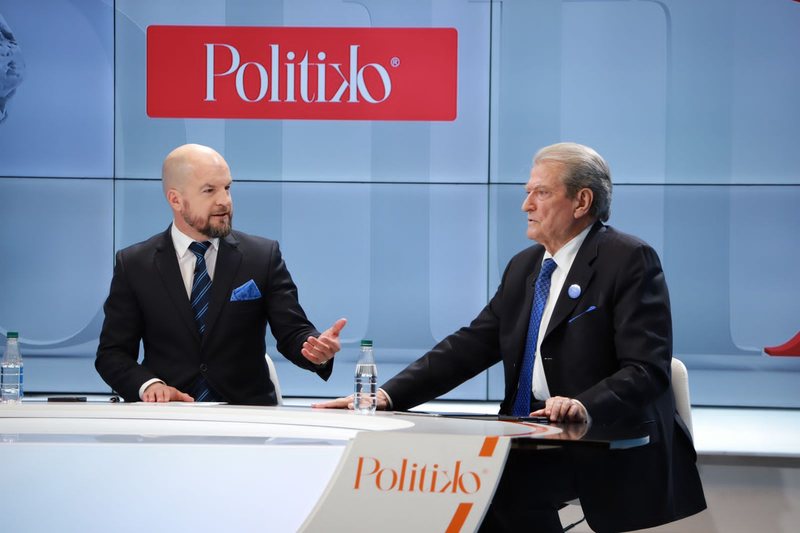
Alfred Lela
Sali Berisha utters the term 'revolution' almost with a smirk. Not that he does not return the echo, but he knows that, both conservative and revolutionary, do not go. All for the fact that he himself was the product, not of revolutions, but of three counter-revolutions in political life. In 1990, when the Marxist-Leninist-Enver proletarian revolution was breathing in the very ruins of the Berlin Wall and the 'end of history, he was put in charge of the counter-revolution. Within a few months, he was transformed, from one of the few vocal intellectuals of the capital's elite, into one of the leaders of the new opposition, emerging from the socio-political crater of the Student Movement. Charisma and energy were enough to pull him off the shortlist at the top gun, in the newly formed Democratic party. The rest is history.
The revolution is distinguished by the habit of persecuting Sali Berisha. The year 1997, even if he counts in the chaos of his conception the mistake of allowing pyramid schemes, came as if to say that the counter-revolution of '90 -'92 was not as negotiated, as some commentators claim. The Public Rescue Committees, where many characters of the communist ancien regime nested, overthrew Berisha, but at the same time gave him a lifeline in politics. He was once again put in charge of the counter-revolution, remaining the first in a disbanded Democratic Party that won just over 20 seats in the '97 election, and became the sandwich between a diverse coalition of all possible. by the former president. After eight long years of counter-revolution, abandoned or betrayed by many, but not by energy or charisma, Sali Berisha came to the shores of 2005 as the only alternative against a super-corrupt socialist caste. Assisted, both by the operation of re-establishing the image, but also by the disruption of the left, he returned to power for the second time, this time as prime minister. As such, it survived two terms, the first of which is held as the best four years in the government of Albania in transition. At the end of the second, he lost his left ally, Ilir Meta, which he did not release after a wiretapping scandal. The 700 thousand euros of 'Prifti wiretapping', which was also brought on January 21, after the SP revolution attempt, today, in the light of the corrupt acts of the 'Rama government', seem like pocket money.
Berisha fell in 2013, with 'a million slaps' and resigned. A revolution in the palace of justice, designed with American pathos, sponsorship of the Soros Foundation, and American insistence, became the main narrative of the government and the counter-narrative of the Doctor, who had resigned from the leadership of the PD, but no, as he himself said: " by Sali Berisha ”. His efforts to keep a counter-revolution afloat, not as a scheme against reform, nor a rejection of the need for it, but as a political reading of the oversight that Rama's seizure of justice would give, also brought about his political return. As in '97, it took a cold American hand to try to politically neutralize the former prime minister and president. In a non-grata by Anthony Blinken it seemed that, as some anti-Berisha commentators were enthusiastic, it would end the protracted Albanian transition.
That did not happen. The transition continues, but not as Berisha's fault. The attempt to take political and cultural Albania not by process, but by revolution, has always produced distortions. Among other things, is the current political landscape, where the opposition is invested and discouraged, both internally and externally. Part of it is the attempt to simulate the film opposition, both with the court and with the embassy.
The shelf of the political history of these 30 years is full of skeletons of such oppositions.
The return of Sali Berisha for the third time as a terrible infant of transition and of the right does not automatically mean revenge and triumph of the counter-revolution. But, a return to normalcy is. The un-simulated political situation should be understood as normal, just to create the idea of dichotomy, confrontation, or democracy itself.
Maybe Sali Berisha can never return the DP to power but bring back the dichotomy. And this is the first condition for the normalization of the political process. Not forgetting the fact that American non grata comes to the political back of Sali Berisha with the crucifixion of a sacrifice. As troublesome as the "belated democratic revolution" of 1997. And sacrifice is what draws people to leaders.
Latest news



Countdown nears, DP seizes lead in Shkodra and Lezha
2025-05-13 08:51:05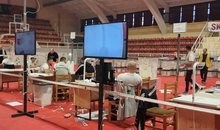
Result/ PS wins for the first time in Paskuqan
2025-05-13 08:39:26


Clear skies and cloudy skies, this is the weather forecast for Tuesday
2025-05-13 08:02:42
Morning Post/ In 2 lines: What mattered yesterday in Albania
2025-05-13 07:48:57

Vote counting in Mirdita concludes, DP wins convincingly
2025-05-12 23:40:46
Diaspora vote counting/ Observer - Ballës: Get out, you kicked us out of Albania
2025-05-12 23:27:36
Four almonds a day, 6 direct benefits to the body
2025-05-12 23:15:40
Vllaznia team 'doctor' arrested, dozens of fireworks found in his bag
2025-05-12 23:02:26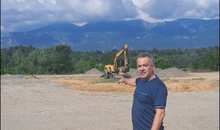
Denunciation/Electoral Reward for Noizy
2025-05-12 22:51:44
She won the mandate from the open list in Kukës, here is who Elvira Peka is
2025-05-12 22:38:39
Victory in Kukës, Flamur Hoxhaj: Fruit of the work and program we have done
2025-05-12 22:30:07
Tritan Shehu talks about the election result: Lazarati voted for the DP
2025-05-12 22:30:03
Trump may travel to Turkey for negotiations between Zelensky and Putin
2025-05-12 22:16:46
Counting ends in Kukës district, DP wins 2 mandates
2025-05-12 22:11:27
Egnatia is declared champion of Albania, ending Vllaznia's 24-year dream
2025-05-12 22:03:56


Albanian convict terrorizes prison in Greece, takes guards hostage
2025-05-12 21:36:15
Rama leaves headquarters, does not speak to journalists
2025-05-12 21:26:16
New report, old refrain
2025-05-12 21:18:59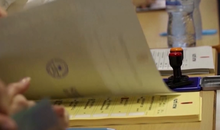
DP gains advantage in Lezha, secures 4 mandates
2025-05-12 21:06:16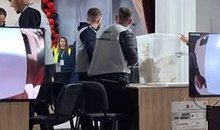
DP leads in Kavaja against SP
2025-05-12 20:57:52
In Shkodra, Vllaznia brings together the commissioners of the SP and the DP
2025-05-12 20:43:15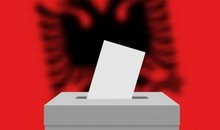
60% of votes counted across Albania, how mandates are distributed
2025-05-12 20:30:56

OSCE-ODIHR Report/ Media in Albania, collaborators of the government
2025-05-12 20:20:13
What would happen to your body if you slept less than six hours?
2025-05-12 20:08:27
Counting closes in Librazhd, how votes were divided between the DP and the SP
2025-05-12 20:02:24
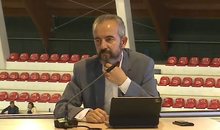
Celibashi: Here's when we can have the final election results
2025-05-12 19:45:19
The May 11 elections, with old problems
2025-05-12 19:37:31
Source: DP should request the annulment of the elections
2025-05-12 19:25:20
From May 15, President Osmani begins efforts to unblock the Parliament
2025-05-12 19:18:39
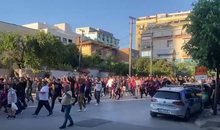
Vllaznia-Egnatia is played today, Shkodra fans arrive at the "National Arena"
2025-05-12 19:03:11
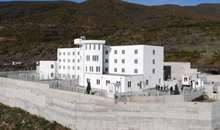
Even in the women's prison, the SP is voted for
2025-05-12 18:44:08
Accident in Laç, 84-year-old man taken to Trauma Hospital
2025-05-12 18:30:36
Counting continues in Tirana, Tabaku: Projection of mandates will change
2025-05-12 18:18:03

The Diaspora vote, a reflection of the elections within the country?
2025-05-12 17:59:12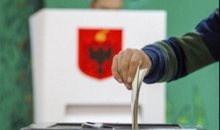


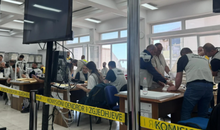
The DP leads confidently in Fushë Krujë and Kamëz
2025-05-12 17:19:50
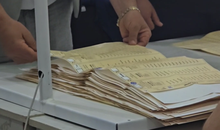


Number of diplomas declining, 9-year education most affected
2025-05-12 16:41:54
Leaving aside votes from Greece, CEC: They will not be excluded from the count
2025-05-12 16:31:53

They photographed ballots, two people are wanted in Tirana
2025-05-12 16:11:52
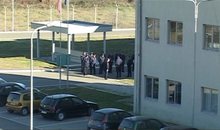
Prisoners choose Rama!? PS wins with 82% in Elbasan detention center
2025-05-12 15:55:19

Austrian tourist, injured in accident on Himara-Borsh road, dies
2025-05-12 15:37:14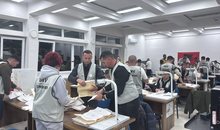
The counting process in Cërrik ends, here's who won
2025-05-12 15:31:20

"There are violations!"/ Vote counting halted in CEAZ 17 in Klos
2025-05-12 15:11:41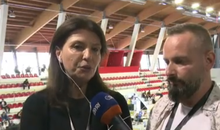


Who are the candidates of small parties who secure a seat in the Assembly?
2025-05-12 14:50:24
The elections were held under political patronage - organizations emphasize
2025-05-12 14:49:37
Berisha warns: The opposition will not turn a blind eye to violations
2025-05-12 14:28:33

Why did Rama grow up?
2025-05-12 14:11:37


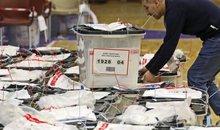
Vote counting in Delvina closes, here are the results
2025-05-12 13:38:57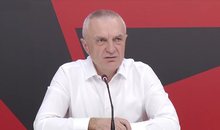
He is running on an open list, how many votes has Ilir Meta received so far?
2025-05-12 13:20:00



Vote counting in Fier suspended, process resumes tomorrow at 08:00
2025-05-12 12:24:35
Electronic voting results published in Vora, votes for each party
2025-05-12 12:10:03
In such elections, victory can only be Edi Rama's.
2025-05-12 12:01:10
Threatened journalist during duty, 26-year-old faces criminal charges
2025-05-12 11:57:39

The counting process in Himara ends, the Socialist Party wins
2025-05-12 11:49:17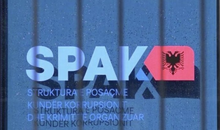
May 11th elections, SPAK: 39 criminal proceedings have been registered
2025-05-12 11:36:25
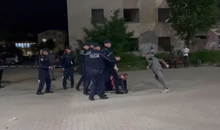

PSD third political force, what are the chances of the 'small ones' so far?
2025-05-12 11:04:31
Counting ends in Rrogozhina, SP emerges as the leading force
2025-05-12 10:50:30
Counting ends in Tepelena, Socialist Party wins
2025-05-12 10:45:23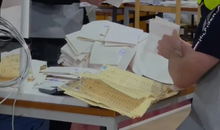
Counting ends in Memaliaj, Libohova and Këlcyrë, here's who's leading
2025-05-12 10:28:23
Mirditë/ DP leads over SP, how many votes have they received so far
2025-05-12 10:23:30
Spain makes decision, shortens weekly working hours
2025-05-12 10:10:30

Threats for a vote, the party's deputy chairman under investigation by SPA
2025-05-12 09:53:18
The DP-ASHM coalition leads in Kavaja
2025-05-12 09:47:41
DP-ASHM leads in Kukës after counting 71 ballot boxes
2025-05-12 09:31:26
BIRN: Organized crime “oriented” the vote in Durrës
2025-05-12 09:24:39
